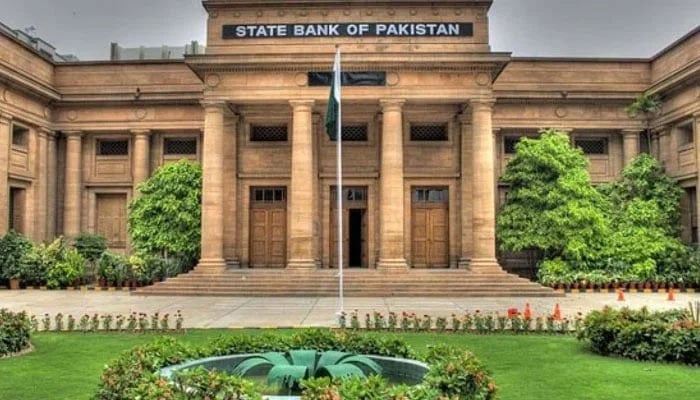[ad_1]

The State Bank of Pakistan’s (SBP) Monetary Policy Committee (MPC) on Monday decided to maintain the status quo on the policy rate as it anticipates that inflation had peaked and would “start falling” from this month onwards.
The MPC had met in April last in which it had jacked up the key policy rate by 100 basis points to a record high of 21% to control inflation.
Since January 2022, the SBP has raised rates by a total of 1,150bps.
The statement by the central bank today noted that “higher inflation outturns for April and May were broadly as anticipated”. It also “noted a sequential ease in inflation expectations of both consumers and businesses from their recent peaks”.
The committee also expects “domestic demand to remain subdued amid tight monetary stance, domestic uncertainty and continuing stress on external account”.
“In this backdrop, and given the declining m/m trend, the MPC views inflation to have peaked at 38% in May 2023, and barring any unforeseen developments, expects it to start falling from June onwards,” said the statement.
On inflation, the SBP noted that it “remained broad-based” owing to the increase in food prices.
“Importantly, core inflation maintained its upward trajectory, albeit at a slower pace, mainly indicating the second-round impact of higher food and energy prices and exchange rate depreciation amid still elevated inflation expectations,” said the SBP. However. central banl “expects that reduced demand-side pressures and ease in inflation expectations, along with moderating global commodity prices and high base effect, would help bring inflation down from June 2023 onwards”.
“In this context, the MPC views that maintaining the current policy stance is necessary to bring inflation down to the medium-term target range of 5%–7% by the end of FY25,” it noted.
The central bank also noted that “broad money growth decelerated in May 2023 compared to last year, largely due to a substantial fall in private sector credit (PSC) and a contraction in net foreign assets of the banking system”.
More to follow…
[ad_2]
Source link






